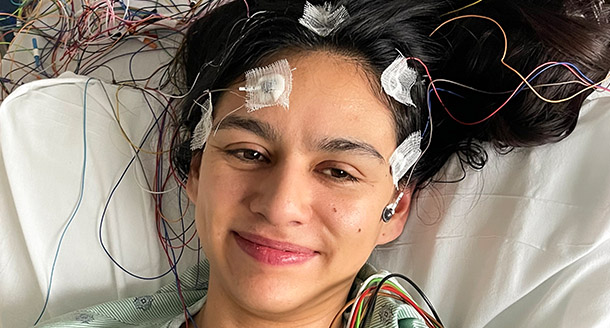National Brain Tumor Society, the largest nonprofit dedicated to the brain tumor community in the United States, recently announced further details on its
Defeat GBM Research Collaborative, which aims to double the five-year survival rate of patients with
glioblastoma multiforme (GBM) – the most common and deadliest form of brain cancer – in just five years. Details include the nature of the four (4) simultaneous and synergistic projects that make up the overall Initiative, as well as the partner institution and/or lead principal investigators responsible for each.
“After we first shared information about the construct of the Defeat GBM Research Collaborative earlier this year, we heard a great amount of enthusiasm from the brain tumor community,” said N. Paul TonThat, CEO, National Brain Tumor Society. “Since then, our staff and advisors have spent a great deal of time planning, discussing, and finalizing the specific research projects, as well as refining the structure to allow each of the individual efforts to feed into the whole. We’re extremely excited to get to work on meeting our goals.”
The timelines, designs, aims, and integration of the projects, as well as how the teams will continuously share and transfer ideas and data as they move along, were solidified during a recent meeting of the world-class brain tumor researchers participating in the Defeat GBM Research Collaborative. The four projects are: target discovery, drug development, predictive biomarkers, and systems biology:
- Discovery – Led by Dr. Webster Cavenee, Dr. Frank Furnari & Ludwig Cancer Research
The goal is to identify the right biological target(s) and understand any associated resistance mechanism. Targets identified here will then be triaged into each of the other three (3) projects to help understand how to overcome drug resistance in GBM.
- Drug Development – Led by Dr. W.K. Alfred Yung & The University of Texas MD Anderson Cancer Center
The goal is to accelerate drug development by identifying existing molecules/drugs that can be applied specifically to GBM, both on their own and in combination, as well as develop novel drugs (at MD Anderson) specifically for GBM. Simultaneous work in the discovery and biomarker projects will aid the team in matching and creating drugs for different patients and different biological targets.
- Predictive Markers (biomarkers) – Led by Dr. Paul Mischel, Dr. Timothy Cloughesy (UCLA) & Ludwig Cancer Research
The goal is to develop predictive marker panels to guide therapy – including combination therapy – for each patient based on the molecular composition of their tumor. These discoveries will then be used to better inform the concurrent drug discovery project stated above, as any markers that are identified as predicating resistance will be screened by the MD Anderson team for drugs, or rational combinations of drug, that can be put together to defeat the particular resistance.
- Systems Biology – Led by Dr. Ingo Mellinghoff & Memorial Sloan-Kettering Cancer Center
The goal is to better understand a tumor’s systematic molecular and biological response when attacked with clinical inhibitors of well-characterized GBM mutations (i.e. EGFR and mIDH1). Using systems biology approaches, this project will seek to develop, and then test, rational combinations of inhibitors against these known GBM therapeutic targets. Inhibitors and mutations screened in this project will help supplement observations made in all other projects.
Announced in March of 2013, the Defeat GBM Research Collaborative, a subsidiary of the National Brain Tumor Society, is the Organization’s largest strategic research initiative to-date, and is built around a funding and research model that is designed to rapidly move progress through the drug development pipeline. The Initiative connects leading researchers from top institutions across the country, all of whom previously have a successful track record of collaborating together. A team of Strategic Scientific Advisors will oversee the Initiative and regularly review its progress, and hold the project teams accountable for attaining key milestones and annual goals during the five-year quest.
To learn more, please visit: www.DefeatGBM.org



